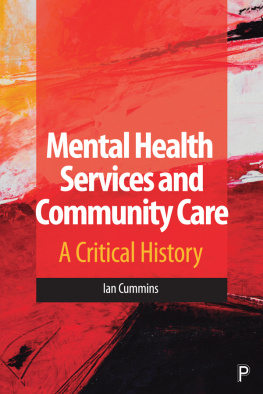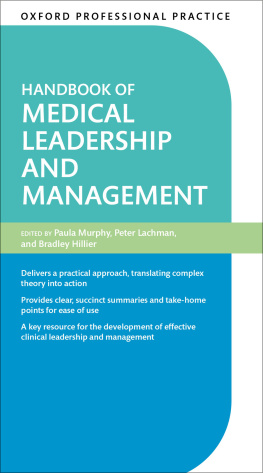2013 Richard Field and Judy Oliver
First published 2013
Apart from any fair dealing for the purposes of research or private study, or criticism or review, as permitted under the Copyright, Design and Patents Act, 1988, this publication may be reproduced, stored or transmitted in any form, or by any means, only with the prior permission in writing of the publishers, or in the case of reprographic reproduction, in accordance with the terms of licences issued by the Copyright Licensing Agency. Enquiries concerning reproduction outside these terms should be sent to the publishers.
Library of Congress Control Number: 2013940924
British Library Cataloguing in Publication Data
A catalogue record for this book is available from the British Library
ISBN 978-1-4462-8225-0
ISBN 978-1-4462-8226-7 (pbk)
Learning Matters
An imprint of SAGE Publications Ltd
1 Olivers Yard
55 City Road
London EC1Y 1SP
SAGE Publications Inc.
2455 Teller Road
Thousand Oaks, California 91320
SAGE Publications India Pvt Ltd
B 1/I 1 Mohan Cooperative Industrial Area
Mathura Road
New Delhi 110 044
SAGE Publications Asia-Pacific Pte Ltd
3 Church Street
#1004 Samsung Hub
Singapore 049483
Editor: Luke Block
Development editor: Lauren Simpson
Production controller: Chris Marke
Project management: Swales & Willis Ltd, Exeter, Devon
Marketing manager: Tamara Navaratnam
Cover design: Wendy Scott
Typeset by: C&M Digitals (P) Ltd, Chennai, India
Printed and bound by CPI Group (UK) Ltd, Croydon, CR0 4YY
List of figures
List of tables
Foreword
Commissioning is not a new concept to those of us who lead or work with health and social care organisations. However, our understanding of what works in terms of structures, relationships, systems and behaviours continues to evolve. Yet, for many people who work in organisations providing health and social care services, the word and the activities involved still remain a mystery.
In this text, the authors attempt to demystify commissioning, explore its benefits and describe associated key activities. They help us by unravelling its origins through to the current changes in the Health and Social Care Act 2012 to demonstrate that what is happening now is nothing new. Rather, it could perhaps be described as the continuation of a journey of discovery as the facets of commissioning have been tried and tested in different ways.
Looking to the future, the case is made for viewing commissioning on a whole-life basis to ensure a better balance between care and treatment, prevention and wellbeing. In order to realise the potential efficiencies and economies of such new developments as community budgets and community-based commissioning, many different types of collaboration will be required. In addition to technical commissioning skills, all those involved will need to be able to collaborate effectively between themselves, whether commissioners or providers, service users and patients, carers, families, neighbours and community organisations.
This book has been expertly produced by Richard Field and Judy Oliver. Their many years of experience of operating in health and social care contexts from the board room, the council chamber to frontline services are clear to see. To move forward in such financially constrained conditions is likely to require some disruption to the current system. They contribute to this by constructively challenging the readers traditional thinking and by posing questions of those that are strategically and operationally involved in commissioning.
It is my sincere belief that this text will be of benefit to all who work in this field and, ultimately, their clients and the wider community.
Professor Keith Brown
Series Editor
National Centre for Post Qualifying Social Work, Bournemouth University
About the authors
Richard Field is a qualified accountant, executive coach and a visiting fellow at Bournemouth University. Richard started his financial career with Essex and Suffolk County Councils before joining Anglia Ruskin University. Whilst at the university Richard helped public sector managers develop the skills they needed to flourish in contexts involving compulsory competitive and purchaser/provider operation both forerunners of commissioning. Richard has worked for the Office for Public Management on a number of highly successful leadership programmes and at Bournemouth University he teaches strategic management and commissioning. Currently Richard is a freelance development specialist working with individual leaders, leadership teams, Clinical Commissioning Groups and Health and Wellbeing Boards. Richard facilitates leadership and organisational development, helping design frameworks and processes relating to commissioning. Richard is committed to helping organisations realise the significant opportunities offered by todays commissioning environment.
Judy Oliver is a qualified barrister, executive coach and facilitator specialising in strategic thinking, management of change and transition and the development of teams and partnerships. Judy started her career with BP, where she worked in a variety of roles, including industrial relations, legal, HR policy and management development of high-potential managers. After contributing to the development of the first publicprivate sector MBA with Warwick Business School, she transferred to local government, initially as Head of HR for Education at Kent County Council and later working directly for the deputy chief executive during the development of purchaserprovider arrangements. Since becoming self-employed in 1998, Judy has designed and delivered a wide range of bespoke leadership development programmes and workshops for leaders across all sectors but, particularly, for clinical leaders in the NHS. Clients include Clinical Commissioning Groups, Health and Wellbeing Boards, Primary Care Trusts and national organisations such as the General Medical Council and the Parliamentary and Health Service Ombudsman.
Chapter 1
Introduction
Welcome to this introductory text for professionals involved in, or responsible for, health and social care. The content will also be of potential value to managers operating elsewhere in organisations engaged in commissioning or providing public services.
Commissioning is not new. Its roots can be traced back to the 1979 Conservative administration which introduced a number of initiatives, including compulsory competitive tendering (CCT), purchaser/provider arrangements in social care, service level agreements, direct service organisations (DSOs) and GP fundholding. The Labour administration elected in 1997 abandoned DSOs and GP fundholding; however, not much later, they introduced other initiatives, such as Primary Care Groups and, later, World Class Commissioning in the NHS that encouraged or required a distinct commissioning role. The journey to commissioning continues with the coalition government and the Health and Social Care Act 2012. This act requires each GP practice to belong to a Clinical Commissioning Group (CCG) which are authorised to take over responsibility for commissioning budgets from Primary Care Trusts (PCTs). In recent years, many public sector organisations have started to work in more commercial ways with the private sector, and have adopted principles and practices typically associated with commissioning.











